
Hubert Sielecki (born 6 November 1946 in Rosenbach, Carinthia) is an Austrian artist, primarily known for his animated films.

Hubert Sielecki (born 6 November 1946 in Rosenbach, Carinthia) is an Austrian artist, primarily known for his animated films.
In 1985 he founded the Austrian chapter of the International Animated Film Association (ASIFA). In 1990–1991 he was a lecturer for film at the Hochschule für Bildende Künste Braunschweig. From 1986 to 1991 he was a member of film promotion boards in Austria. Sielecki is also a board member of the Vienna Künstlerhaus. [1]
In 2007, on the occasion of the studio's 25th anniversary, he created the Hubert Sielecki Prize in several categories for artistic and experimental short film or animation for young Austrian filmmakers. [2] [3] [4]
In 1968 he undertook his first film experiments. Together with Zbigniew Rybczyński he created his first animated movies. His movies are auteur films, in which he is mostly responsible for all areas of production from script to music. He worked with writers such as Gerhard Rühm, Antonio Fian and Gernot Wolfgruber, painters such as Maria Lassnig, Tone Fink or musicians such as Wolfgang Mitterer together. Through his specialization in animation film his work has a special position in the Austrian film avant-garde. [5]
Sielecki's films were featured on film festivals in Germany, including at the Berlin International Film Festival, the Hamburg Short Film Festival, the International Videofestival Bochum, the Bamberg Short Film Festival and the Regensburg Short Film Week. Outside the German-speaking countries, he was shown on important festivals such as the Hiroshima International Animation Festival and the Kraków Film Festival. [6]

Vienna Shorts is an international short film festival held annually in May in Vienna. It is the largest short film festival in Austria.

Andrea Maria Dusl, is an Austrian/Swedish film director, author and illustrator.

The Diagonale is a film festival that takes place every March in Graz, Austria.
Anja Salomonowitz is an Austrian film director and screenwriter, specialised on documentary films with political or social background.
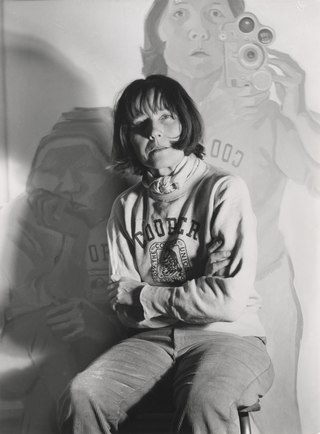
Maria Lassnig was an Austrian artist known for her painted self-portraits and her theory of "body awareness". She was the first female artist to win the Grand Austrian State Prize in 1988 and was awarded the Austrian Decoration for Science and Art in 2005. Lassnig lived and taught in Vienna from 1980 until her death.

Revanche is a 2008 Austrian thriller film written and directed by Götz Spielmann. It centers on the ill-fated love story between a Viennese ex-con and a Ukrainian prostitute who get involved in a bank robbery.
Frederick Douglas Stephan "Fred" Baker was an Austrian-British filmmaker, media scholar, and archaeologist.
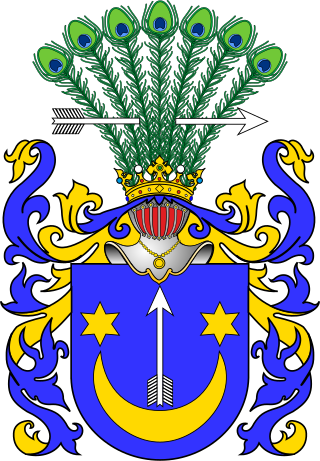
Sielecki is a Polish surname, also of one of the noble (szlachta) families. It is derived from the village of Sielec, of which many exist with that name in Poland, Ukraine and Belarus.
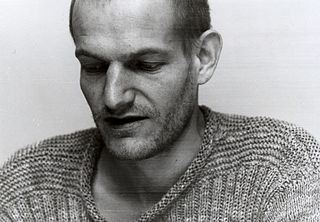
Wolfgang Mitterer is an Austrian composer and musician.
Art-Club was an association of artists during the postwar period in Vienna, Austria, in 1946–1959.
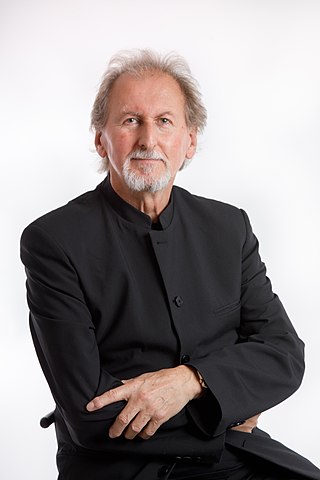
Gerhard Gruber is an Austrian composer and piano player. As accompanist for silent films, he has become the leading authority in Austria since 1988.

Peter Pakesch is an Austrian exhibition curator, museum director and foundation director of the Maria Lassnig Foundation.
The Theodor Körner Prize is a set of annual Austrian awards bestowed by the Theodor Körner Fund in recognition of cultural and/or scientific advances.
Christian Lerch is a journalist and radio documentary producer based in Vienna, Austria and Berlin, Germany.

Presidential elections were held in Austria on 24 April 2016, with a second round run-off on 22 May 2016. However, the results of the second round were annulled and a re-vote took place on 4 December 2016.

The Austrian pavilion is a national pavilion of the Venice Biennale. It houses Austria's official representation during the Biennale.
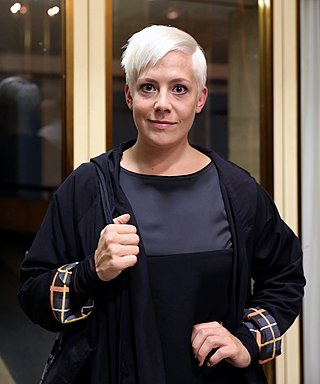
Katharina Mückstein is an Austrian film director, screenwriter and producer. Mückstein wrote and directed the feature films Talea (2013) and L'Animale (2018). She also wrote and produced the documentaries Three Farmers and a Son (2016), for which she won the Austrian Film Award for Best Documentary, and Animals and Other People (2017), and wrote and directed the documentary Feminism WTF (2023)–the third most-watched Austrian film of 2023–for which won the Vienna Women's Prize for Best Director in 2023.

Mara Mattuschka is an Austrian avant-garde filmmaker.
The Outstanding Artist Award for Music is given annually by the Federal Chancellery of Austria for achievements that influence the current art scene. Creative people are honored who can already show a meaningful oeuvre and whose works are of artistic supraregional importance. The prize is endowed with €10,000. The award winners are selected by an independent expert jury. The prize is awarded as a category of the Outstanding Artist Awards. In total, the Outstanding Artists Awards are given in 14 categories. The predecessor award State Prize for Music was given from 1950 to 1970. In 2009, the award was named Outstanding Artist Award for Music.

Verena Altenberger is an Austrian actress.